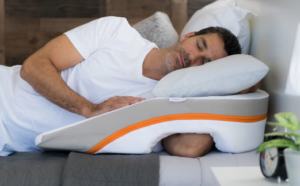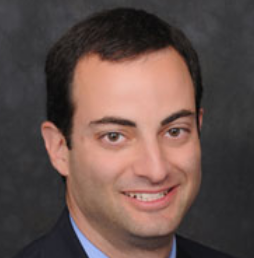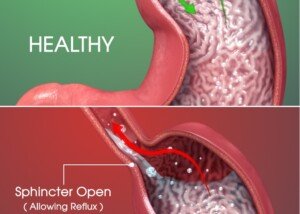It’s that time again: About four hours after you’ve eaten, your GERD is really acting up.
It’s not your imagination. This is really happening; the reflux disease is worse.
When food incites acid reflux to occur, this doesn’t always happen immediately after eating.
“GERD can often be worse four hours after we eat because depending on what meal it is, a person may be sleeping or lying down which makes reflux worse,” says Alan Gingold, DO, a board certified gastroenterologist with the Digestive Health Center of NJ.
“When we eat, gravity from sitting up helps to keep much of the acid in your stomach.
“When we are sleeping, however, we produce less saliva, so there is less of a way to neutralize the acid, motility slow-down, so we don’t clear the acid as well.
“And we are lying down, so the acid tends to come back up into the esophagus. This is often several hours after we eat. This may be why the reflux is more severe four hours after eating.”
Nighttime Acid Reflux
Should you eat less for your evening meal? This is practical if you normally eat more than you should, if you stuff yourself, eating beyond the point of satiation.
This might help take the edge off of the GERD issues in the hours to come.
But what if you don’t overeat, and this issue keeps recurring?
If it happens only after you go to bed, there is a simple solution that’s proven to be very effective: a wedge pillow.

These come in an assortment of designs and angles, and elevate the torso upwards so that gravity can oppose reflux and keep the acidic contents in your stomach where they belong.
If the problem still occurs even before you go to bed, and you’ve even eliminated GERD triggers like caffeine, alcohol and chocolate in the evening, then the issue is probably not being caused by food.
What goes on in the hours after dinner that might be triggering GERD?
Anxiety and stress are notorious for bringing on the symptoms of acid reflux.
In the hours after dinner, do you engage in any activities that are stressful?
• Is this when arguments with your teens usually occur?
• What about with your spouse?
• Or is this the time that you review household finances or continue the work that you brought home from the office?
• Do you exercise in the evening? For some people, a hard workout can trigger acid reflux, especially if it involves impact like running and jumping.
Take a look at your post-dinner activities, whatever it is that you usually do in the four hours following your last meal of the day. Then see what kind of adjustments you can make.
Daytime GERD
If you have a habit of napping after meals – either immediately or a few hours later — stop.
Instead, take a walk (a better recharger than napping) or at least remain upright in a seated position doing something that won’t trigger drowsiness.
If you suffer from the so-called mid-afternoon slump, take a look at what you usually eat for lunch.
Cut back on the refined carbohydrates and eat healthier foods. See if this doesn’t help prevent that slump.
Napping in a bed or on a sofa can easily bring on acid reflux for those whose esophageal sphincter is weak and lets acid spurt up the esophagus.
 Dr. Gingold attributes his success to the extra time he spends with his patients. His areas of expertise include reflux disease, Barrett’s esophagus, capsule endoscopy, chronic liver disease and inflammatory bowel disease.
Dr. Gingold attributes his success to the extra time he spends with his patients. His areas of expertise include reflux disease, Barrett’s esophagus, capsule endoscopy, chronic liver disease and inflammatory bowel disease.
 Lorra Garrick has been covering medical, fitness and cybersecurity topics for many years, having written thousands of articles for print magazines and websites, including as a ghostwriter. She’s also a former ACE-certified personal trainer.
Lorra Garrick has been covering medical, fitness and cybersecurity topics for many years, having written thousands of articles for print magazines and websites, including as a ghostwriter. She’s also a former ACE-certified personal trainer.
.



























